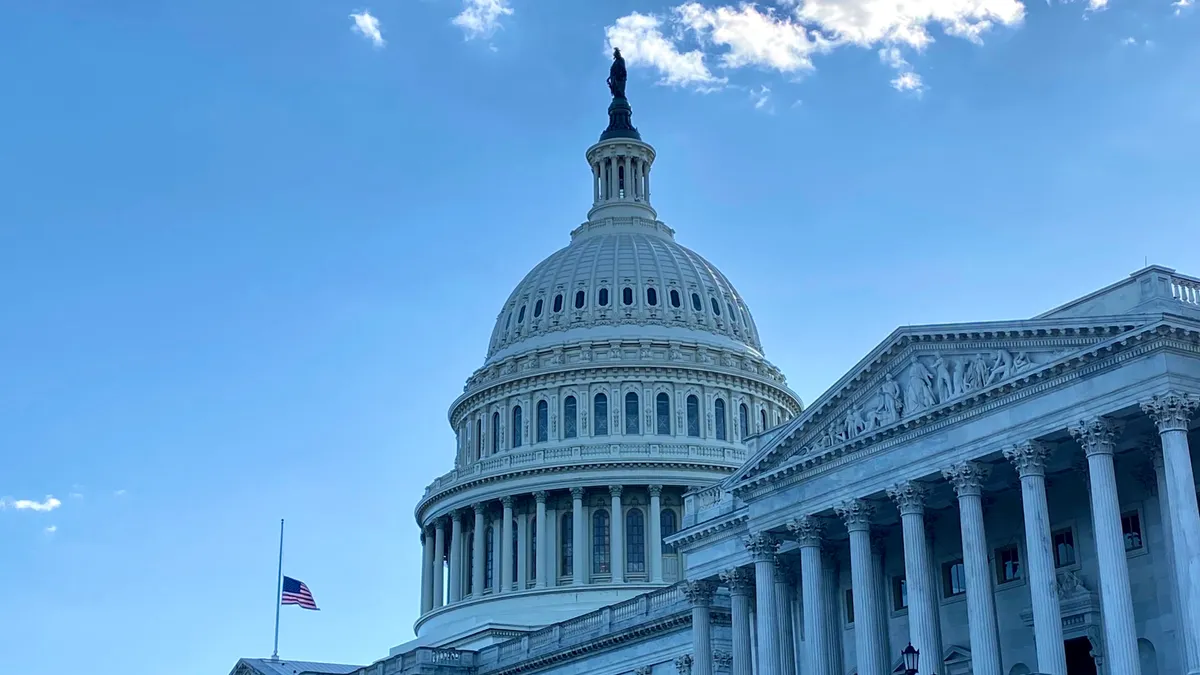Dive Brief:
- Federal government employee engagement and satisfaction declined year-over-year in 2021, according to the Best Places to Work rankings produced by the Partnership for Public Service and Boston Consulting Group, reflecting challenges such as COVID-19 safety concerns and staffing shortages.
- 2021 “presents a workforce at a critical and stressful turning point,” per the report, with workers concerned about returning to offices. Compared to the prior year, respondents gave low scores to leadership in areas such as communication about workplace returns. Others were dissatisfied with pay increases; federal employees received a raise of just 1% in 2021 while consumer prices rose 7% between December 2020 and December 2021.
- Employees in the report between the ages of 30 and 39 registered the lowest engagement and satisfaction scores, while those ages 60 and over registered the highest satisfaction of any age range. This observation was true of the 2020 report’s findings as well, but the gap between age groups fell in 2021. Scores were also lower for those who identified as LGBT; workers with disabilities; Native Americans and Alaskans; and workers who identified with two or more races.
Dive Insight:
The report comes as public sector entities continue to encounter hiring difficulties nationwide – and could signal recruitment opportunities to private employers. In its latest jobs report, the U.S. Bureau of Labor Statistics found that while private sector employment in June sat at 140,000 jobs higher than in February 2020, government employment was 664,000 jobs lower by comparison.
Sources in a recent virtual event told HR Dive that hiring woes have affected state and local governments, particularly for skilled positions in areas such as nursing and engineering. Public sector engagement also lags behind that of the private sector, according to the Best Places to Work report, which compared metrics with research on private sector workers by consulting firm Mercer.
The Best Places to Work report highlighted flexibility as a key issue for federal employees; fewer workers were able to telework daily in November 2021 compared to September and October of 2020. But agencies may be open to increasing flexible work options in the near future. For example, Director of National Intelligence Avril Haines said during a July 14 summit that her office is looking to increase telework options, Federal News Network reported.
Private sector organizations face similar questions and challenges moving forward. Compensation continues to complicate HR strategy amid high inflation, while hybrid and remote work have made it difficult for organizations to adapt their workplace cultures accordingly, according to HR Dive’s 2022 Identity of HR survey.













